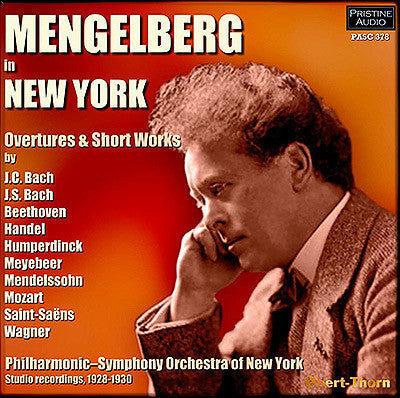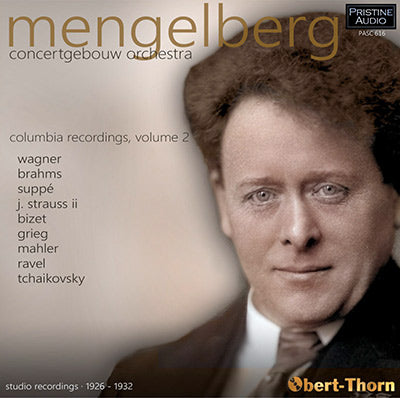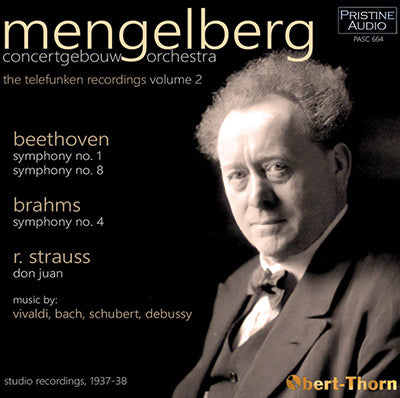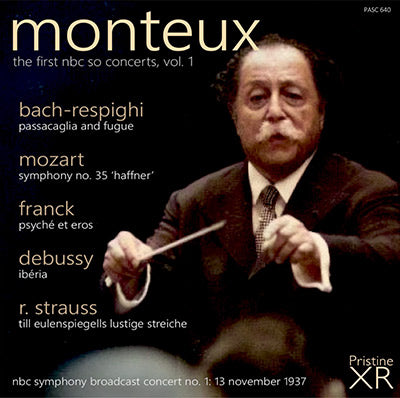Bach
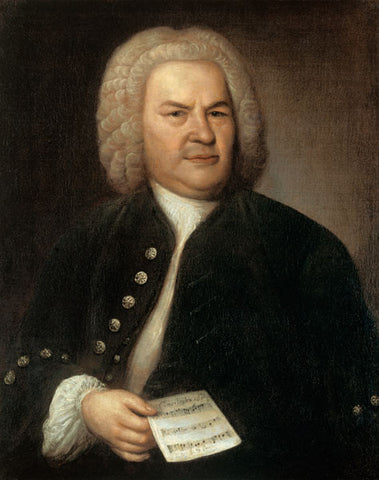
Johann Sebastian Bach (31 March [O.S. 21 March] 1685 – 28 July 1750) was a German composer and musician of the Baroque period. He enriched established German styles through his mastery of counterpoint, harmonic and motivic organisation, and his adaptation of rhythms, forms, and textures from abroad, particularly from Italy and France. Bach's compositions include the Brandenburg Concertos, the Goldberg Variations, the Mass in B minor, two Passions, and over three hundred cantatas of which approximately two hundred survive. His music is revered for its technical command, artistic beauty, and intellectual depth.
While Bach's abilities as an organist were highly respected during his lifetime, he was not widely recognised as an important composer until a revival of interest in his music during the first half of the 19th century. He is now generally regarded as one of the greatest composers of all time.
To a large extent, Bach's musical style fits in the conventions of his day, which is the final stage of the baroque style. When his contemporaries, such as Handel, Telemann and Vivaldi wrote concertos he did so too. When they wrote suites, he did so too. Similar with recitatives followed by da capo arias, four-part choral music, use of basso continuo etc. The specifics of his style lie with characteristics such as his skill in contrapuntal invention and motivic control and his talent for writing tightly woven music of powerful sonority. From an early age, he imbued himself with the compositions of his contemporaries and of prior generations, all of what was available from European composers, such as the French, the Italian, and those from all parts of Germany, and there is little of it that didn't appear in his own music.
Religious music was at the centre of Bach's output for much of his life. The hundreds of sacred works he created are usually seen as manifesting not just his craft but a truly devout relationship with God. He had taught Luther's Small Catechism as the Thomaskantor in Leipzig, and some of his pieces represent it. The Lutheran chorale was the basis of much of his work. In elaborating these hymns into his chorale preludes, he wrote more cogent and tightly integrated works than most, even when they were massive and lengthy.[citation needed] The large-scale structure of every major Bach sacred vocal work is evidence of subtle, elaborate planning to create a religiously and musically powerful expression. For example, the St Matthew Passion, like other works of its kind, illustrated the Passion with Bible text reflected in recitatives, arias, choruses, and chorales; but in crafting this work, Bach created an overall experience that has been found over the centuries since to be both musically thrilling and spiritually profound.
Bach published or carefully compiled in manuscript many collections of pieces that explored the range of artistic and technical possibilities inherent in almost every genre of his time except opera. For example, The Well-Tempered Clavier comprises two books, each of which presents a prelude and fugue in every major and minor key, displaying a dizzying variety of structural, contrapuntal and fugal techniques.

Bach
Johann Sebastian Bach (31 March [O.S. 21 March] 1685 – 28 July 1750) was a German composer and musician of the Baroque period. He enriched established German styles through his mastery of counterpoint, harmonic and motivic organisation, and his adaptation of rhythms, forms, and textures from abroad, particularly from Italy and France. Bach's compositions include the Brandenburg Concertos, the Goldberg Variations, the Mass in B minor, two Pa...
VARIOUS COMPOSERS A selection of shorter works
Studio recordings, 1928-1930
Total duration: 72:54
Philharmonic-Symphony Orchestra of New York
Willem Mengelberg, conductor
TCHAIKOVSKY Symphony No. 4 in F minor
TCHAIKOVSKY Symphony No. 5 in E minor
TCHAIKOVSKY Romeo and Juliet – Fantasy Overture
TCHAIKOVSKY Waltz from Serenade for Strings
J S BACH Suite No. 2 for Flutes and Strings
J C BACH Sinfonia in B flat
BEETHOVEN Leonore Overtures 1 & 3, Coriolan Overture et al
WEBER Der Freischütz, Euryanthe, Oberon - Overtures
LISZT Les Préludes
WAGNER Tannhäuser Overture - Lohengrin Prelude
BRAHMS Symphony No. 3 - Academic Festival Overture
GRIEG Two Elegiac Melodies
RAVEL Boléro
J STRAUSS II Perpetuum Mobile
music by Cheubini, Mendelssohn, Berlioz, Suppé, Bizet, Mahler, Tchaikovsky
Studio recordings, 1926-32
Concertgebouw Orchestra of Amsterdam
conducted by Willem Mengelberg
Save 5% when you purchase the complete set
BEETHOVEN Symphony No. 1
BEETHOVEN Symphony No. 8
BRAHMS Symphony No. 4
R. STRAUSS Don Juan
music by Vivaldi, Bach, Schubert & Debussy
Studio recordings, 1937-38
Total duration: 2hr 32:06
Concertgebouw Orchestra of Amsterdam
conducted by Willem Mengelberg
BACH Violin Partita No. 2, Violin Sonata No. 1
NARDINI Larghetto
PERGOLESI Violin Sonata No. 12
TARTINI Sonata in G minor "The Devil's Trill"
VITALI Chaconne
VIVALDI Violin Sonatas in A and D major
Studio recordings, 1935-38
Total duration: 73:51
Nathan Milstein, violin
Leopold Mittmann, piano
BACH-RESPIGHI Passacaglia and Fugue
MOZART Symphony No. 35 'Haffner'
FRANCK Psyché et Eros
DEBUSSY Ibéria
R. STRAUSS Till Eulenspiegels lustige Streiche
Live concert broadcast, 1937
Total duration: 76:11
NBC Symphony Orchestra
conducted by Pierre Monteux

